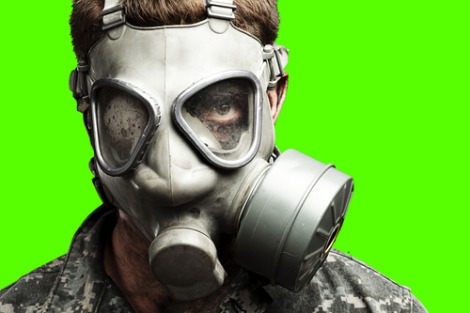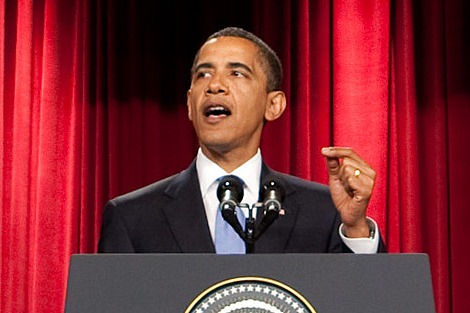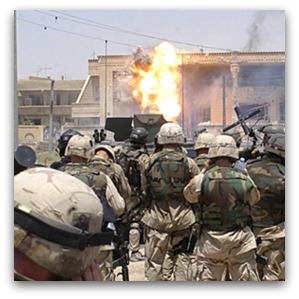Keywords: Weapons
There are more than 200 results, only the first 200 are displayed here.
-

INTERNATIONAL
- John Langmore
- 19 September 2013
8 Comments
This has been a turbulent two weeks. One's attitudes have oscillated through anger and despair to a glimpse of hope and ended with renewed confidence in Obama's values and intentions. What a time for Australia to be chairing the Security Council! My impression is that our diplomats are working with professional skill, commitment to the rule of law and to peaceful conflict resolution.
READ MORE 
-

AUSTRALIA
- Justin Glyn
- 30 August 2013
7 Comments
For the second time in a little over ten years, the US and its allies seem about to launch hostilities against an Arab country on the basis of the possession or use of chemical weapons. They have made clear that while they may seek a Security Council resolution, they do not consider themselves bound by it. This is worrying.
READ MORE 
-

INTERNATIONAL
- Evan Ellis
- 27 August 2013
5 Comments
In some ways the intense focus on chemical weapons and red lines is diversionary. Enough blood has been spilt to paint a thousand red lines. 100,000+ people have been killed already. Is it somehow easier on the International Community’s conscience to think of families being ripped apart by artillery shells than dying from chemical warfare?
READ MORE 
-

AUSTRALIA
- Evan Ellis
- 16 August 2013
1 Comment
We might get lucky. Malcolm Turnbull might be right, and the mass of egos, grievances and interests that make up US-Sino relations might 'evolve into a new order, without either side having to make concessions to the other'. But the risks are growing. In this context the framing of asylum seekers as a threat to our sovereignty seems plain silly. War between China and the US would be a disaster to our national interests.
READ MORE 
-

ARTS AND CULTURE
- Tim Kroenert
- 15 August 2013
2 Comments
As social commentary Elysium clearly has in mind any country that receives 'unwanted' arrivals of refugees. But it seems particularly timely in Australia, where the political response to asylum seekers who arrive by boat is simply to stop them. The response by the fictional bureaucrat Delacourt, to blow the smugglers' ships out of the air before they reach Elysium, certainly takes the 'stop the boats' mentality to its extreme.
READ MORE 
-

AUSTRALIA
- Frank Brennan
- 13 August 2013
1 Comment
'Like many Australians, I had hoped that the dastardly plan announced on 19 July would stop the boats in the short term, as a stop-gap measure. It is dismaying to learn that appropriate consultations had not occurred with Indonesia with the result that the very people who were to receive the shock and awe message are yet to receive it. There’s only one thing worse than shock and awe; that’s shock and awe that doesn’t work because you haven’t done your homework.' 43rd Barry Marshall Memorial Lecture, Trinity College Theological School, 14 August 2013.
READ MORE
-

INTERNATIONAL
- Jim McDermott
- 19 July 2013
10 Comments
Fearful men should not be able to walk suburban streets carrying hidden revolvers. Yet that's the Bizarro universe the US finds itself in. Politicians in the US and Australia take note: if you spend your time creating a climate of anxiety, whipping up hysteria or building walls in order to score political points, the eventual result is going to be children lying dead in your streets or drowned off your shores.
READ MORE 
-

INTERNATIONAL
Alluding to his own military style intervention in Kosovo, Bill Clinton warned Obama not to look like a 'wuss' on Syria. Still, Obama's decision to start providing arms to Syrian rebels is an enormous risk. Australia's history of state interventions to tackle Indigenous disadvantage provide surprisingly apt criteria for evaluating the decision.
READ MORE 
-

AUSTRALIA
- Duncan MacLaren
- 16 April 2013
9 Comments
We seem to think it is okay to publish pictures of Kim Jong-un with Mickey Mouse ears or refer to his late father Kim Jong-il as a 'pygmy'. Insulting a proud people, no matter how weird we think the regime is, does not win friends. The west would do well to remember this if it is to engage the regime in meaningful dialogue.
READ MORE 
-

ARTS AND CULTURE
- Bronwyn Evans
- 26 March 2013
A wooden sturdy poker, it helped on the days when you couldn't feel the floor, but was no substitute for a seat on the tram when you don't look sick or expecting.
READ MORE 
-

AUSTRALIA
Gone are the days when Australians believed everyone deserved a fair go: the principle that 'might is right' has replaced the ideals of equity and justice in the national psyche. It is not surprising that after engaging in costly military actions over a decade Australians are more fearful now than when we invaded Iraq in 2003.
READ MORE 
-

AUSTRALIA
- Tony Smith
- 06 February 2013
11 Comments
The Labor Party's ethical problems are deep seated. Once it adopted pragmatism as its first principle, policy debates lost meaning. The ideological vacuum was filled by enslavement to poll driven politics and media images. The Left struggled to retain its influence and Labor's heart vanished. We should expect much more from our politicians.
READ MORE 